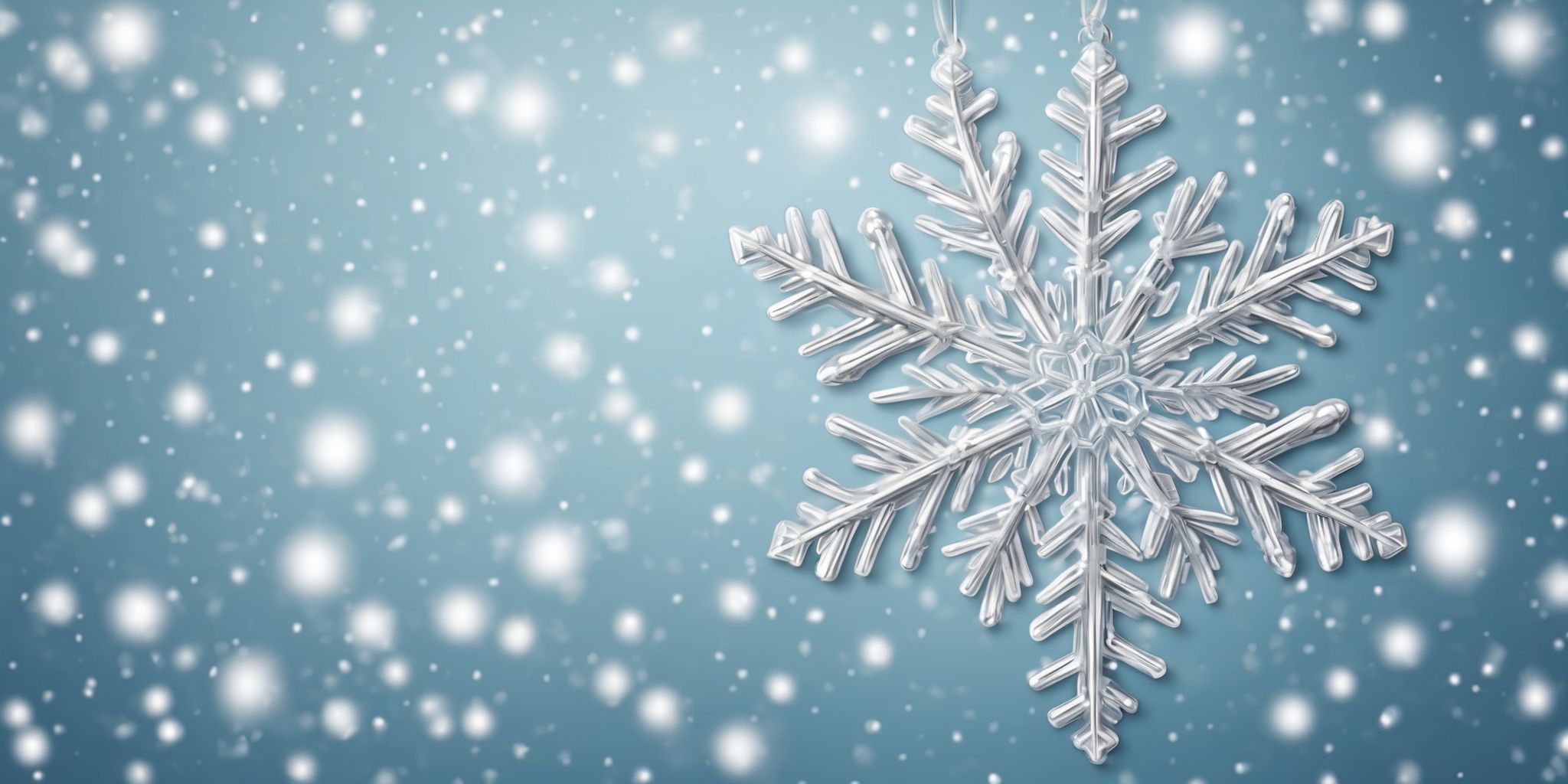- Blog
- Christmas questions
- What is the origin of Christmas?

It's that time of year again when our streets are adorned with sparkling lights, carols fill the air, and jovial Santa Clauses make appearances at every corner.
Yes, it's Christmas time! But amidst the festivities and joyful chaos, have you ever wondered about the origin of this beloved holiday? Why do we celebrate it on December 25th? And how did it evolve into the merry occasion we know today? Let's embark on a journey through time and discover the fascinating roots of Christmas - a holiday with a history as rich and diverse as the holiday season itself.
The significance of Christmas
The significance of Christmas lies in its celebration of the birth of Jesus Christ. It holds religious and cultural importance for Christians worldwide. Beyond its religious significance, Christmas is a time for family, love, and giving. It brings people together, fostering a sense of joy and unity during the holiday season. It is a time to exchange gifts, decorate homes, and enjoy festive meals.
People engage in various traditions like attending church services, singing carols, and displaying nativity scenes. Christmas also provides an opportunity to reflect on gratitude, kindness, and the spirit of generosity.
Curiosity about the origins
Curiosity about the origins of Christmas drives many questions. People wonder where this beloved holiday truly began. By exploring the historical roots, we can gain a deeper appreciation for its significance. Ancient pagan festivals played a crucial role in shaping Christmas traditions. Winter solstice celebrations, like Yule, had elements of feasting and merriment that persist today. The Roman festival of Saturnalia also influenced Christmas with its customs of gift-giving and role reversal.
The Christianization of Christmas further transformed and blended these traditions. Uncovering these origin stories offers a fascinating journey into the evolution of the holiday we celebrate today.
Ancient Pagan Festivals
Winter solstice celebrations
Winter solstice celebrations hold a fascinating connection to the origins of Christmas. Dating back to ancient times, various cultures commemorated the shortest day of the year with festivities and rituals. These celebrations often centered around the concept of rebirth and the return of light. For instance, in ancient Rome, the festival of Saturnalia marked a period of merriment, feasting, and gift-giving.
Similarly, Germanic tribes celebrated Yule, lighting fires and offering sacrifices to welcome the sun's rebirth. These pagan traditions later intertwined with Christian practices as the holiday evolved. Exploring the roots of winter solstice celebrations sheds light on the rich tapestry of Christmas traditions we cherish today.
Saturnalia: The Roman influence
Saturnalia, a Roman festival held in December, significantly influenced the origins of Christmas. During Saturnalia, the Romans engaged in feasting, gift-giving, and role reversal, with masters serving their slaves. These festive practices laid the foundation for similar customs observed in today's holiday celebrations. The tradition of exchanging gifts, indulging in lavish meals, and promoting a sense of equality finds its roots in this ancient Roman festival.
The influence of Saturnalia demonstrates the interconnectedness of cultures throughout history, shaping the way we celebrate Christmas today.
Feasting, gift-giving, and role reversal
During the ancient Roman festival of Saturnalia, feasting, gift-giving, and role reversal were prominent. People indulged in lavish meals, exchanging small presents, and even masters served their servants. This tradition evolved, blending with Christian customs to form Christmas festivities. Today, feasting remains an integral part of Christmas celebrations, with families gathering around tables laden with special dishes.
Gift-giving also thrives, as people exchange presents to show affection and spread joy.
Additionally, some communities embrace the notion of role reversal during Christmas plays and parties, where people temporarily assume different characters and roles. These practices have become deeply ingrained in the modern Christmas experience.
Christianization of Christmas
The early Church and Christmas
The early Church played a significant role in the establishment of Christmas. In the 4th century, when the Christian faith started spreading, the Church sought to Christianize pagan festivals and bring people into the fold. They decided to celebrate Jesus' birth on December 25th, aligning it with existing winter solstice festivals. By adopting this date, the Church sought to provide an alternative celebration that would divert attention from pagan practices.
This choice helped in the assimilation of pagan cultures into Christianity and the widespread acceptance of Christmas as a religious holiday.
The choice of December 25th
The choice of December 25th for celebrating Christmas has historical and symbolic significance. While the exact birth date of Jesus is unknown, early Christians purposefully aligned Christmas with existing pagan festivals like the Roman Saturnalia and the winter solstice. By doing so, they sought to weave Christian beliefs into familiar celebrations, making the new religion more accessible to the masses.
This strategic decision allowed for the adoption and acceptance of Christmas by incorporating elements that people were already familiar with. Today, December 25th continues to be widely celebrated as the birth of Jesus across various cultures, although specific traditions may vary.
Aligning with winter solstice celebrations
Historically, the choice of December 25th for Christmas was influenced by the desire to align with existing pagan celebrations. By incorporating familiar traditions, Christianity aimed to make the transition easier for converts. Winter solstice festivals were significant across cultures, symbolizing the rebirth of the sun and the triumph of light over darkness. The early Church strategically embraced this symbolism, infusing it into Christmas. This alignment allowed people to continue their festive traditions while incorporating Christian beliefs. Today, remnants of these ancient celebrations can still be seen in modern Christmas traditions, such as the use of candles and lights to symbolize hope and renewal during the darkest time of the year.
Co-opting pagan holidays
Co-opting pagan holidays played a significant role in the Christianization of Christmas. By incorporating elements from existing celebrations, early Christian leaders sought to make the transition more acceptable to pagan populations.
For example, the timing of Christmas was strategically aligned with the winter solstice festivities that already held cultural importance. This allowed for a blending of traditions and a smoother adoption of the Christian holiday.
Additionally, customs such as feasting, gift-giving, and role reversal during Saturnalia were repurposed to fit within the framework of Christmas. This approach helped to assimilate pagan practices into the new festival and ease the conversion process.
Evolution of Christmas traditions
The evolution of Christmas traditions throughout history has been influenced by various factors. Over time, cultural and societal changes have shaped the way we celebrate this festive season.
For example, the Victorian era revived interest in Christmas traditions by emphasizing family gatherings, gift-giving, and festive decorations.
Additionally, popular literature, such as Charles Dickens' "A Christmas Carol," played a role in popularizing and reinforcing certain customs. Today, Christmas traditions continue to evolve as new practices emerge and old ones are adapted to fit modern lifestyles. From decorating Christmas trees to exchanging gifts, these traditions reflect our desire to create meaning and joy during the holiday season.
Popularization and Commercialization
Victorian era and Christmas revival
During the Victorian era, Christmas experienced a revival, shaping many of the holiday traditions we know today. Queen Victoria and Prince Albert popularized the celebration of Christmas through their own festive activities, such as decorating Christmas trees and exchanging gifts. Charles Dickens also played a significant role in revitalizing the holiday spirit with his iconic novel, "A Christmas Carol.
" The story's themes of generosity and compassion resonated with the public, encouraging charitable acts during the holiday season. These Victorian influences continue to impact our modern Christmas celebrations, emphasizing family gatherings, gift-giving, and spreading joy to others.
Influence of Charles Dickens' "A Christmas Carol"
The timeless classic, "A Christmas Carol" by Charles Dickens, has had a profound influence on how we celebrate Christmas.
- The book popularized the idea of Christmas as a time for generosity, compassion, and redemption.
- It emphasized the importance of family, love, and community during the holiday season.
- Dickens' vivid descriptions of Christmas traditions, such as decorating trees and sharing meals, shaped our modern customs.
- The story prompted individuals to reflect on their own values and consider the impact of their actions on others.
"A Christmas Carol" continues to inspire people to embrace the true spirit of Christmas and to prioritize kindness and goodwill towards all.
Christmas Questions
Why is Christmas celebrated on December 25th?
The choice of December 25th for Christmas has historical and symbolic significance. While the exact date of Jesus' birth is unknown, early Christian leaders selected December 25th to align with existing pagan celebrations like the Roman festival of Saturnalia and the winter solstice. This strategic decision allowed Christianity to integrate with local customs and aid in the spread of the faith.
Today, December 25th has become universally recognized as the day to commemorate the birth of Jesus, regardless of the actual historical accuracy.
How do different cultures celebrate Christmas?
Celebrations of Christmas vary across cultures, showcasing the diversity of traditions worldwide. In Mexico, families partake in Las Posadas, a nine-day reenactment of Joseph and Mary's search for shelter. Meanwhile, in Japan, Christmas Eve is often associated with romantic settings, resembling Valentine's Day. In Ethiopia, Christmas is observed on January 7th following the Julian calendar, and festivities entail special prayers and church services. Similarly, the Philippines embraces the Simbang Gabi, a series of early morning masses, and festive parades known as the "Panunuluyan" and "Parada ng mga Lechon" are held in the streets. These examples highlight the rich multicultural aspects of Christmas celebrations.
What are some popular Christmas traditions?
When it comes to popular Christmas traditions, there are a few that stand out. Decorating a Christmas tree is a common tradition in many households, with families gathering to adorn it with ornaments and lights. Another popular tradition is the exchange of gifts, where loved ones surprise each other with presents.
Additionally, many people enjoy attending Christmas parties or gatherings with friends and family, sharing meals and spreading holiday cheer. Lastly, singing Christmas carols is a time-honored tradition that brings joy and togetherness during the festive season. These traditions help create a sense of warmth and togetherness, enriching the holiday experience for everyone.
Summary
The origin of Christmas can be traced back to ancient pagan celebrations and religious traditions. Many pre-Christian cultures held winter festivals to honor the return of the sun and the end of the darkest days of the year. The Roman festival of Saturnalia, the Norse Yule, and the celebration of the birth of the Persian god Mithra all influenced the development of Christmas.
With the rise of Christianity, Christmas gradually absorbed and transformed these traditions, and by the fourth century,it had become an established Christian festival. Over time, the celebration of Jesus' birth on December 25th became the primary focus of Christmas, although the exact date of his birth remains uncertain. Today, Christmas is celebrated worldwide by Christians and non-Christians alike, representing a blend of religious customs, folklore, and secular traditions.
Read On

What is the connection between Christmas and the Winter Solstice?
Ah, the magical time of year when twinkling lights adorn homes, carols fill the air, and the scent...

Why do we celebrate Christmas on December 25th?
Have you ever wondered why we celebrate Christmas on December 25th? As the holiday season rolls...

Unraveling the Origins of Christmas Day: A Historical Perspective
Ah, that time of year is upon us once again - twinkling lights, cozy fireplaces, and the joyful...